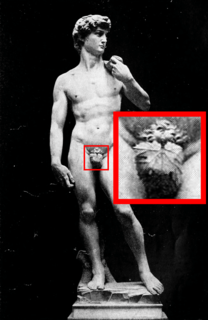 W
WCensorship is the suppression of speech, public communication, or other information. This may be done on the basis that such material is considered objectionable, harmful, sensitive, or "inconvenient". Censorship can be conducted by governments, private institutions and other controlling bodies.
 W
WMushtaq Ahmed, popularly known as Kumir Bhai, was a Bangladeshi dissident, writer, and entrepreneur. His pen name was Michael Kumir Thakur. He founded the first ever commercial Crocodile breeding farm in Bangladesh. His book Kumir Chashir Diary was published in 2018. He was working on another book. He was accused with 10 others of sharing cartoons in social media posts criticizing the Bangladeshi government's corrupt and mismanaged response to covid-19 pandemic and was detained in pre-trial for almost a year. On 25 February 2021 he died in jail, after being denied bail 6 times.
 W
WAll God's Chillun Got Wings (1924) is an expressionist play by Eugene O'Neill about miscegenation inspired by the old Negro spiritual. He began developing ideas for the play in 1922, emphasizing its authenticity in his notes: "Base play on his experience as I have seen it intimately." O'Neill wrote the play in the fall of 1923 and revised the text only slightly for its 1924 publication. Arguably one of his most controversial of plays, it starred Paul Robeson in the premiere, in which he portrayed the black husband of an abusive white woman, who, resenting her husband's skin color, destroys his promising career as a lawyer.
 W
WBans on communist symbols were introduced or suggested in a number of countries as part of their policies of decommunization.
 W
WFacebook has been involved in multiple controversies involving censorship of content, removing or omitting information from its services in order to comply with company policies, legal demands, and government censorship laws.
 W
WA cover-up is an attempt, whether successful or not, to conceal evidence of wrongdoing, error, incompetence, or other embarrassing information. In a passive cover-up, information is simply not provided; in an active cover-up, deception is used.
 W
WEastern Bloc media and propaganda was controlled directly by each country's Communist party, which controlled the state media, censorship and propaganda organs. State and party ownership of print, television and radio media served as an important manner in which to control information and society in light of Eastern Bloc leaderships viewing even marginal groups of opposition intellectuals as a potential threat to the bases underlying Communist power therein.
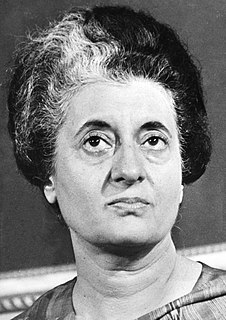 W
WThe Emergency in India was a 21-month period from 1975 to 1977 when Prime Minister Indira Gandhi had a state of emergency declared across the country. Officially issued by President Fakhruddin Ali Ahmed under Article 352 of the Constitution because of the prevailing "internal disturbance", the Emergency was in effect from 25 June 1975 until its withdrawal on 21 March 1977. The order bestowed upon the Prime Minister the authority to rule by decree, allowing elections to be cancelled and civil liberties to be suspended. For much of the Emergency, most of Indira Gandhi's political opponents were imprisoned and the press was censored. Several other human rights violations were reported from the time, including a mass forced sterilization campaign spearheaded by Sanjay Gandhi, the Prime Minister's son. The Emergency is one of the most controversial periods of independent India's history.
 W
WA euphemism is an innocuous word or expression used in place of one that may be found offensive or suggest something unpleasant. Some euphemisms are intended to amuse, while others use bland, inoffensive terms for concepts that the user wishes to downplay. Euphemisms may be used to mask profanity or refer to taboo topics such as disability, sex, excretion, or death in a polite way.
 W
WExpurgation, also known as bowdlerization, is a form of censorship that involves purging anything deemed noxious or offensive from an artistic work, or other type of writing of media.
 W
WThe expression "fig leaf" is widely used figuratively to convey the covering up of an act or an object that is embarrassing or distasteful with something of innocuous appearance, a metaphorical reference to the Biblical Book of Genesis in which Adam and Eve used fig leaves to cover their nudity after eating the forbidden fruit from the tree of the knowledge of good and evil. Some paintings and statues have the genitals of their subjects covered by a representation of an actual fig leaf or similar object, either as part of the work or added afterward for perceived modesty.
 W
WFogging, also known as blurring, is used for censorship or privacy. A visual area of a picture or movie is blurred to obscure it from sight. This form of censorship is used for sexually related images/scenes, hiding genitals, pubic hair, or sexual penetration of any sort. Pixelization is a form of fogging. In Japan, where it is called bokashi, fogging is employed on most films aired on public television that feature adult content of any kind.
 W
WFreedom of speech is a principle that supports the freedom of an individual or a community to articulate their opinions and ideas without fear of retaliation, censorship, or legal sanction. The right to freedom of expression has been recognized as a human right in the Universal Declaration of Human Rights and international human rights law by the United Nations. A lot of countries have constitutional law that protects free speech. Terms like free speech, freedom of speech, and freedom of expression are used interchangeably in political discourse. However, in legal sense, the freedom of expression includes any activity of seeking, receiving, and imparting information or ideas, regardless of the medium used.
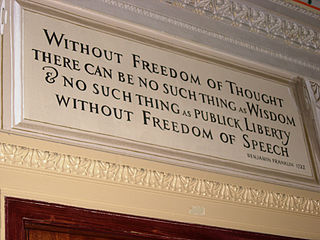 W
WFreedom of thought is the freedom of an individual to hold or consider a fact, viewpoint, or thought, independent of others' viewpoints.
 W
WGatekeeping is the process through which information is filtered for dissemination, whether for publication, broadcasting, the internet, or some other mode of communication. You may find the academic theory of gatekeeping in multiple fields of study, including communication studies, journalism, political science, and sociology. Gatekeeping originally focused on the mass media with its few-to-many dynamic. Currently, the gatekeeping theory also addresses face-to-face communication and the many-to-many dynamic inherent on the Internet. Social psychologist Kurt Lewin first instituted Gatekeeping theory in 1943. Gatekeeping occurs at all levels of the media structure—from a reporter deciding which sources are presented in a headline story to editors choosing which stories are printed or covered. Including, but not limited to, media outlet owners and advertisers.
 W
WThe Gordon W. Prange Collection is the most comprehensive archive in the world of Japanese print publications issued during the early years of the Occupation of Japan, 1945–1949. The Collection is located in Hornbake Library at the University of Maryland.
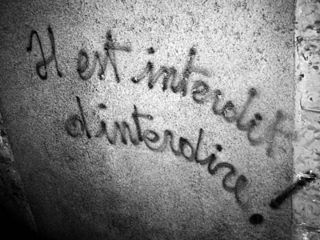 W
WIl est interdit d'interdire ! is a French aphorism first used on an RTL broadcast by Jean Yanne in the form of a mocking joke, and considered as a polyptote by linguists. This sentence later became one of the slogans of May 1968.
 W
WLèse-majesté, a French term meaning "to do wrong to majesty", is an offence against the dignity of a reigning sovereign or against a state.
This article lists times that items were renamed due to political motivations. Such renamings have generally occurred during conflicts; for example, World War I gave rise to anti-German sentiment among Allied nations, leading to disassociation with German names.
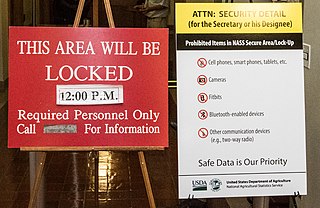 W
WIn journalism and public relations, a news embargo or press embargo is a request or requirement by a source that the information or news provided by that source not be published until a certain date or certain conditions have been met. They are often used by businesses making a product announcement, by medical journals, and by government officials announcing policy initiatives; the media is given advance knowledge of details being held secret so that reports can be prepared to coincide with the announcement date and yet still meet press time.
 W
W"Orwellian" is an adjective describing a situation, idea, or societal condition that George Orwell identified as being destructive to the welfare of a free and open society. It denotes an attitude and a brutal policy of draconian control by propaganda, surveillance, disinformation, denial of truth (doublethink), and manipulation of the past, including the "unperson"—a person whose past existence is expunged from the public record and memory, practiced by modern repressive governments. Often, this includes the circumstances depicted in his novels, particularly Nineteen Eighty-Four but political doublespeak is criticized throughout his work, such as in Politics and the English Language.
 W
WPostal censorship is the inspection or examination of mail, most often by governments. It can include opening, reading and total or selective obliteration of letters and their contents, as well as covers, postcards, parcels and other postal packets. Postal censorship takes place primarily but not exclusively during wartime and periods of unrest, and occasionally at other times, such as periods of civil disorder or of a state of emergency. Both covert and overt postal censorship have occurred.
 W
WProfanity is a socially offensive use of language, which may also be called cursing, swearing, or expletives. Accordingly, profanity is language use that is sometimes deemed impolite, rude, or culturally offensive. It can show a debasement of someone or something, or be considered an expression of strong feeling towards something. Some words may also be used as intensifiers.
 W
WRegressive left is a pejorative term for a branch of left-wing politics that is accused of being accepting of or sympathetic to views that conflict with liberal principles, especially tolerating Islamism.
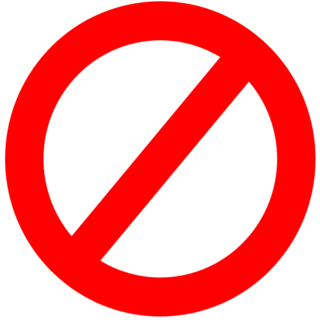 W
WThe Right to Censor was a professional wrestling stable in the World Wrestling Federation from mid-2000 to mid 2001. The group was a parody of the Parents Television Council (PTC), which was protesting the level of violence and sexual content in WWF programming, and threatening to boycott several of their sponsors.
 W
WSafety of journalists is the ability for journalists and media professionals to receive, produce and share information without facing physical or moral threats.
 W
WSociology of Revolution is a book by Russian American sociologist Pitirim Sorokin. Sociology of revolution as branch of sociology was developed by Thomas Hobbes in Leviathan. to a certain extent earlier than Sorokin. Hobbes lived and created in the period of English Revolution. In the opinion by Hobbes, "the war of all against all" begins in the period of revolution and of Civil War, when all men threaten by each man, when each man has the right to all things by right of strong man, when "Man Is Wolf to Man" Sorokin had generalized the data about the new revolutions, unknowns for Hobbes – French Revolution, Russian Revolution (1917), etc.
 W
WThe SPEAK FREE Act of 2015 is a bipartisan Act of Congress that was introduced on May 13, 2015, designed to serve as federal anti-SLAPP legislation, to protect free speech in practice. Its title is an acronym that stands for "Securing Participation, Engagement, and Knowledge Freedom by Reducing Egregious Efforts Act of 2015".